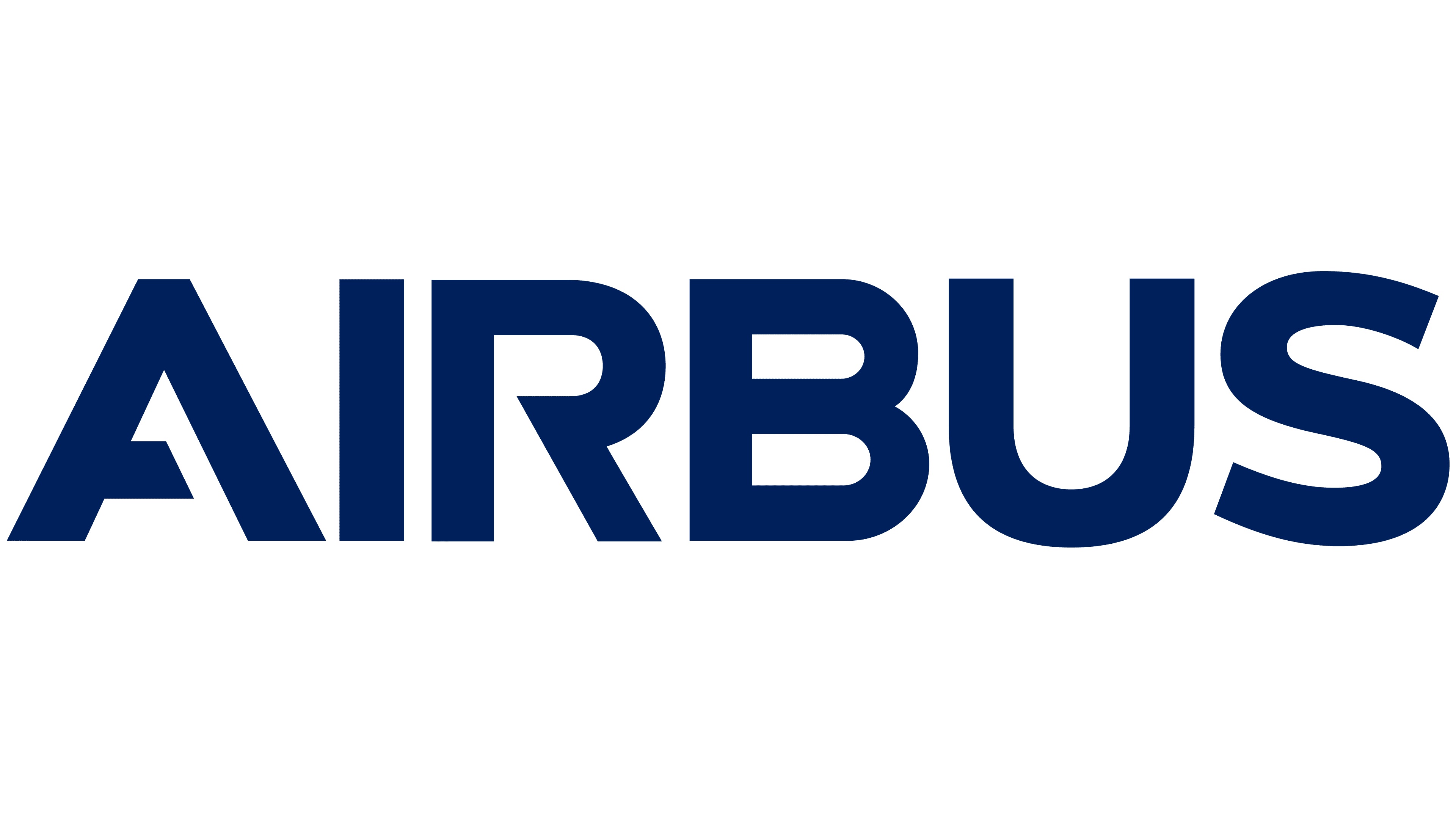
Airbus is a household name in the aviation industry, known for its innovative and cutting-edge aircraft designs. As one of the world’s leading manufacturers of commercial aircraft, Airbus has revolutionized air travel with its advanced technology and exceptional engineering. With a rich history dating back to the early 1970s, Airbus has become synonymous with excellence and reliability, delivering state-of-the-art aircraft to airlines across the globe.
In this article, we will delve into 16 fascinating facts about Airbus that highlight its dominance in the aerospace industry. From record-breaking deliveries to groundbreaking advancements in aviation technology, Airbus continues to push the boundaries of what is possible in the world of flight. So, buckle up and get ready to explore the intriguing world of Airbus!
Key Takeaways:
- Airbus is a global leader in aviation, known for its innovative and sustainable aircraft designs. From the A380 to the A320neo, their diverse lineup shapes the future of air travel.
- With a commitment to diversity and inclusion, Airbus values its talented workforce of over 135,000 employees. Their dedication drives the company’s success in shaping the aviation industry.
Airbus is a multinational company.
With headquarters in Toulouse, France, Airbus operates in multiple countries, including Germany, Spain, and the United States. This multinational presence allows them to attract a diverse and highly skilled workforce.
The first Airbus aircraft took flight in 1972.
Known as the Airbus A300, this wide-body twin-engine jet marked the beginning of Airbus’s journey in the commercial aviation market. It quickly became a favorite among airlines due to its fuel efficiency and passenger comfort.
Airbus produces a wide range of aircraft.
From the popular single-aisle A320 family to the wide-body A350 and A380 models, Airbus offers a comprehensive lineup that caters to the needs of various airlines and markets. This diversity has contributed to its success over the years.
The A380 is the largest passenger aircraft in the world.
Boasting a capacity of up to 853 passengers, the Airbus A380 is an engineering marvel. With its spacious cabins and advanced technology, this double-decker aircraft offers an unparalleled flying experience.
Airbus uses advanced materials in its aircraft.
Incorporating lightweight materials like carbon fiber-reinforced polymer composites, Airbus has been able to reduce the weight of its aircraft, resulting in improved fuel efficiency and reduced emissions.
Airbus is committed to sustainability.
Recognizing the importance of environmental responsibility, Airbus actively embraces sustainability initiatives. The company focuses on reducing carbon emissions, increasing fuel efficiency, and developing alternative propulsion systems.
The Airbus A320neo is a game-changer.
The A320neo, which stands for “New Engine Option,” offers airlines improved fuel efficiency and reduced noise levels. This innovative aircraft has become incredibly popular among both airlines and passengers.
The Airbus Beluga is a unique cargo aircraft.
The Airbus Beluga, also known as the “Flying Whale,” is a large cargo airplane specifically designed to transport oversized cargo, including wings and fuselage sections. Its distinctive appearance makes it easily recognizable.
The Airbus A350 XWB prioritizes passenger comfort.
With its spacious cabins, enhanced air quality, and reduced noise levels, the Airbus A350 XWB delivers an exceptional passenger experience. Its advanced technology ensures a smooth and comfortable journey.
Airbus collaborates with numerous suppliers.
Assembling an aircraft involves the cooperation of various suppliers worldwide. Airbus maintains strong relationships with its suppliers, ensuring the highest quality components for its aircraft.
Airbus has an extensive order backlog.
The demand for Airbus aircraft remains consistently high. The company has a significant order backlog, demonstrating the trust airlines place in their products.
Airbus employs thousands of talented individuals.
With a global workforce of over 135,000 employees, Airbus values the skills and expertise of its staff. Their dedication and innovation contribute to the success of the company.
The Airbus A220 marks a new addition to the lineup.
Formerly known as the Bombardier C Series, the Airbus A220 is a versatile aircraft designed for the regional and short-haul market. Its fuel efficiency and spacious interior make it an attractive choice for airlines.
Airbus is a leader in innovation.
From developing electric and hybrid aircraft concepts to exploring autonomous flight, Airbus consistently pushes the boundaries of aerospace technology.
The Airbus Military division focuses on defense and transport aircraft.
Apart from commercial aircraft, Airbus also produces military aircraft, including transporters and aerial refueling tankers. These machines are essential for various defense forces worldwide.
Airbus promotes diversity and inclusion.
As a global company, Airbus is committed to creating a diverse and inclusive work environment. They value the unique perspectives and contributions of individuals from different backgrounds.
As we can see, Airbus continues to shape the aviation industry with its technological advancements, commitment to sustainability, and innovative aircraft designs. With its extensive lineup and global presence, Airbus will undoubtedly play a significant role in the future of aviation.
Conclusion
In conclusion, these 16 facts about Airbus showcase the company’s impact and success in the aviation industry. From its inception as a European consortium to becoming a major competitor to Boeing, Airbus has consistently pushed the boundaries of innovation and design. Its wide range of aircraft models, commitment to sustainability, and global presence have made it a popular choice for airlines across the world. With a focus on safety, efficiency, and passenger comfort, Airbus continues to shape the future of air travel. As the demand for air transportation grows, Airbus remains at the forefront, consistently delivering cutting-edge technology and advancements that enhance the overall aviation experience.
FAQs
1. What is Airbus?
Airbus is a multinational aerospace company that designs, manufactures, and sells commercial aircraft, helicopters, and military aircraft.
2. How many models of aircraft does Airbus produce?
Airbus produces a wide range of aircraft models, including the A320, A330, A350, and A380 for commercial airlines, as well as various models of helicopters and military aircraft.
3. Where is Airbus based?
Airbus has its headquarters in Toulouse, France. It also has production facilities and offices in various other countries.
4. How does Airbus contribute to sustainability?
Airbus is committed to reducing its environmental impact through the development of fuel-efficient aircraft, implementing sustainable manufacturing practices, and investing in research and development for alternative energy sources.
5. Which airlines use Airbus aircraft?
Many airlines around the world use Airbus aircraft, including popular carriers like Emirates, Lufthansa, and British Airways.
6. How does Airbus prioritize passenger comfort?
Airbus designs its aircraft with passenger comfort in mind, incorporating features such as spacious cabins, larger windows, quieter engines, and advanced in-flight entertainment systems.
7. How does Airbus ensure safety in its aircraft?
Airbus places a strong emphasis on safety during the design and manufacturing process of its aircraft. Rigorous testing, quality control measures, and regular maintenance procedures are implemented to ensure the highest level of safety standards are met.
8. What technological advancements has Airbus made?
Airbus has made significant technological advancements, including the implementation of advanced avionics systems, fly-by-wire technology, and the use of lightweight composite materials, resulting in improved performance and efficiency.
9. Is Airbus a direct competitor to Boeing?
Yes, Airbus and Boeing are direct competitors in the commercial aircraft market, both vying for market share and customer orders.
10. What is the future outlook for Airbus?
The future outlook for Airbus looks promising, with a strong order backlog and continuous focus on innovation. As air travel continues to grow, Airbus is poised to meet the demand with its advanced aircraft models and commitment to excellence.
From Airbus' global reach to its cutting-edge innovations, these facts offer a glimpse into the company's remarkable journey. For football enthusiasts, exploring the world of Airbus UK Broughton FC promises an exciting dive into the club's history and achievements. Toulouse, home to Airbus' headquarters, holds its own set of intriguing facts waiting to be discovered. Whether you're an aviation aficionado or simply curious about the world around you, these articles invite you to uncover more fascinating stories and broaden your horizons.
Was this page helpful?
Our commitment to delivering trustworthy and engaging content is at the heart of what we do. Each fact on our site is contributed by real users like you, bringing a wealth of diverse insights and information. To ensure the highest standards of accuracy and reliability, our dedicated editors meticulously review each submission. This process guarantees that the facts we share are not only fascinating but also credible. Trust in our commitment to quality and authenticity as you explore and learn with us.


